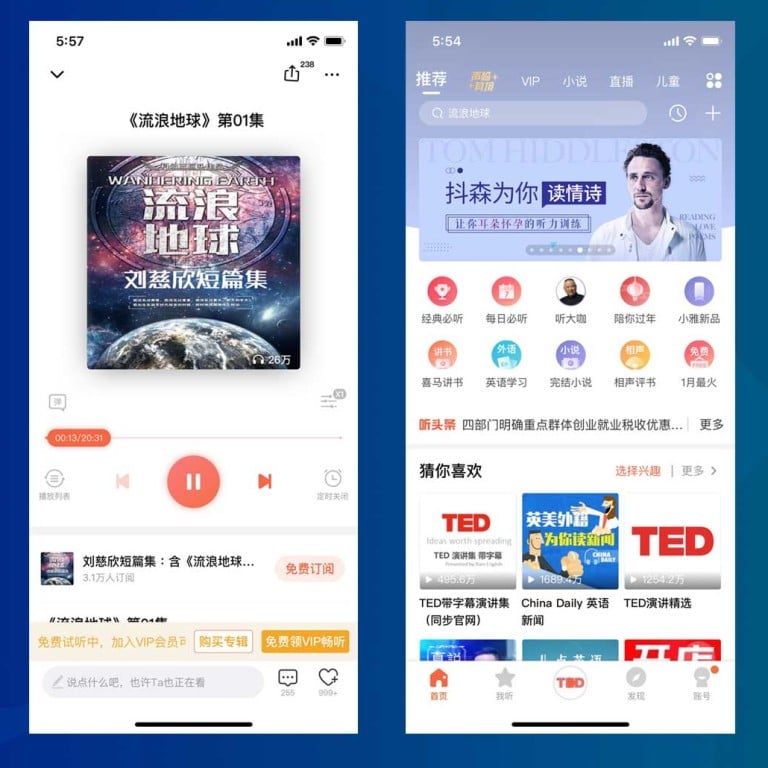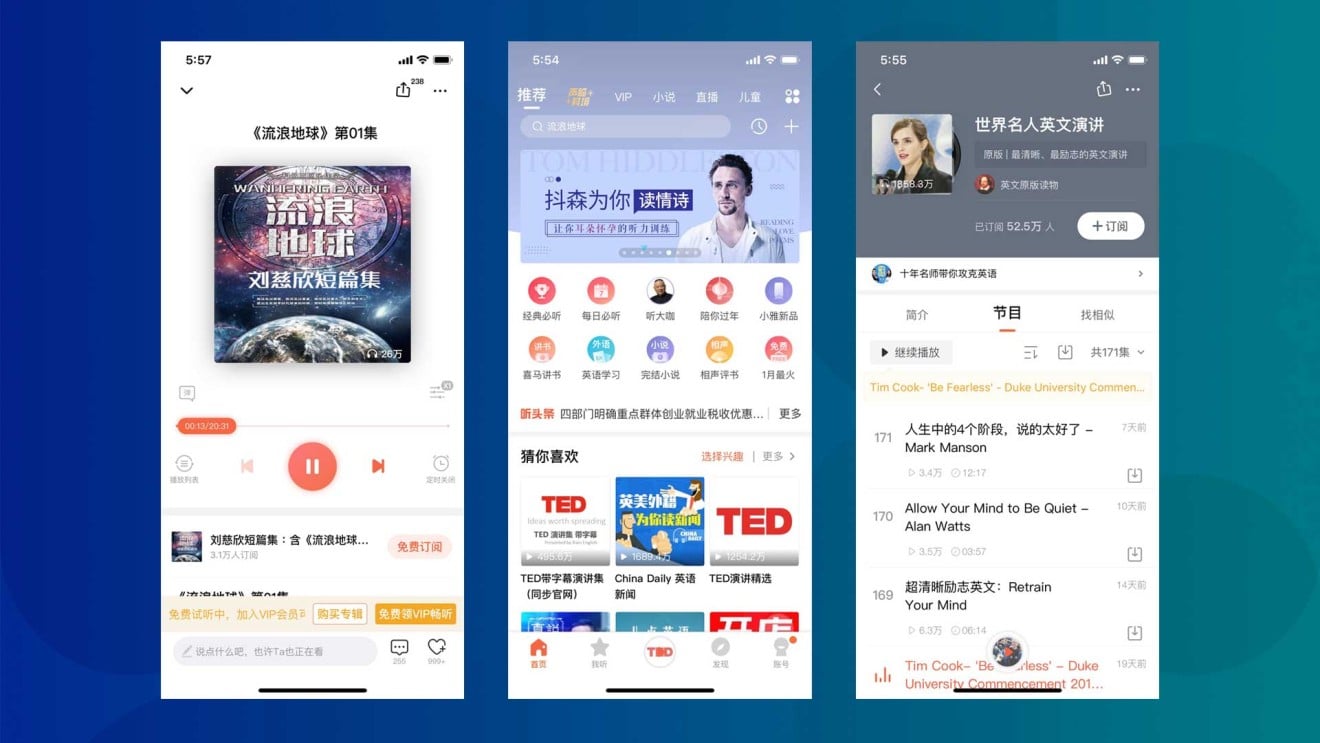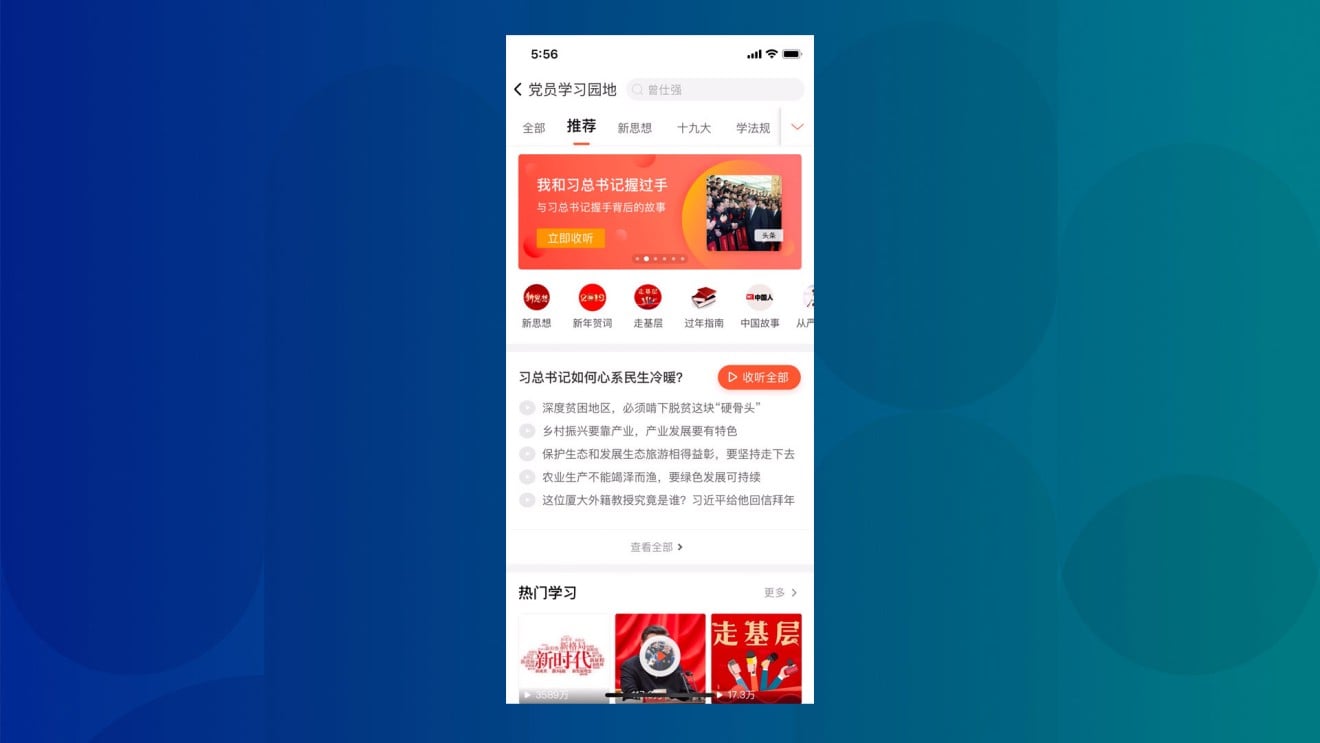
Ximalaya, the podcasting startup behind iTunes and Spotify rival Himalaya
Launched in 2013, Ximalaya is one of China’s most popular platforms for podcasting and audiobooks. It claims some 400 million downloads since launch, and says it earns more from selling paid content than ads.
Turns out, that’s quite different from how millions of people in China listen to podcasts on the country’s hottest platform, Ximalaya -- known as Himalaya elsewhere.

To be clear, a huge chunk of content on Ximalaya is actually free. Amateur DJs run live music channels. Parents of young kids can find bedtime stories and nursery rhymes. History buffs can revel in podcasts about the Qin dynasty or World War I. And English learners can listen to TED talks or speeches by famous Americans. There seems to be something for everyone: The last time I checked, the most popular free podcast was by an acclaimed stand-up comedian.
But Ximalaya also hosts plenty of premium content.
Want to be emotionally intelligent? For US$29 you can download a 201-episode series that helps you deal with your personalities and feelings. (It’s currently the top-selling paid podcast on Ximalaya, having raked up over 78 million listens.)
There seem to be no lack of people who are willing to pay for these educational content. In 2017, Ximalaya said it earned an average of over US$13 per user each month. In comparison, all content on Apple Podcasts are free, while a premium Spotify monthly subscription costs US$9.99. Ximalaya claims it earns more from user fees than ad revenue.

"Alexa, read me a Communist lecture": A smart speaker for party members
For more insights into China tech, sign up for our tech newsletters, subscribe to our Inside China Tech podcast, and download the comprehensive 2019 China Internet Report. Also roam China Tech City, an award-winning interactive digital map at our sister site Abacus.
For more insights into China tech, sign up for our tech newsletters, subscribe to our Inside China Tech podcast, and download the comprehensive 2019 China Internet Report. Also roam China Tech City, an award-winning interactive digital map at our sister site Abacus.

